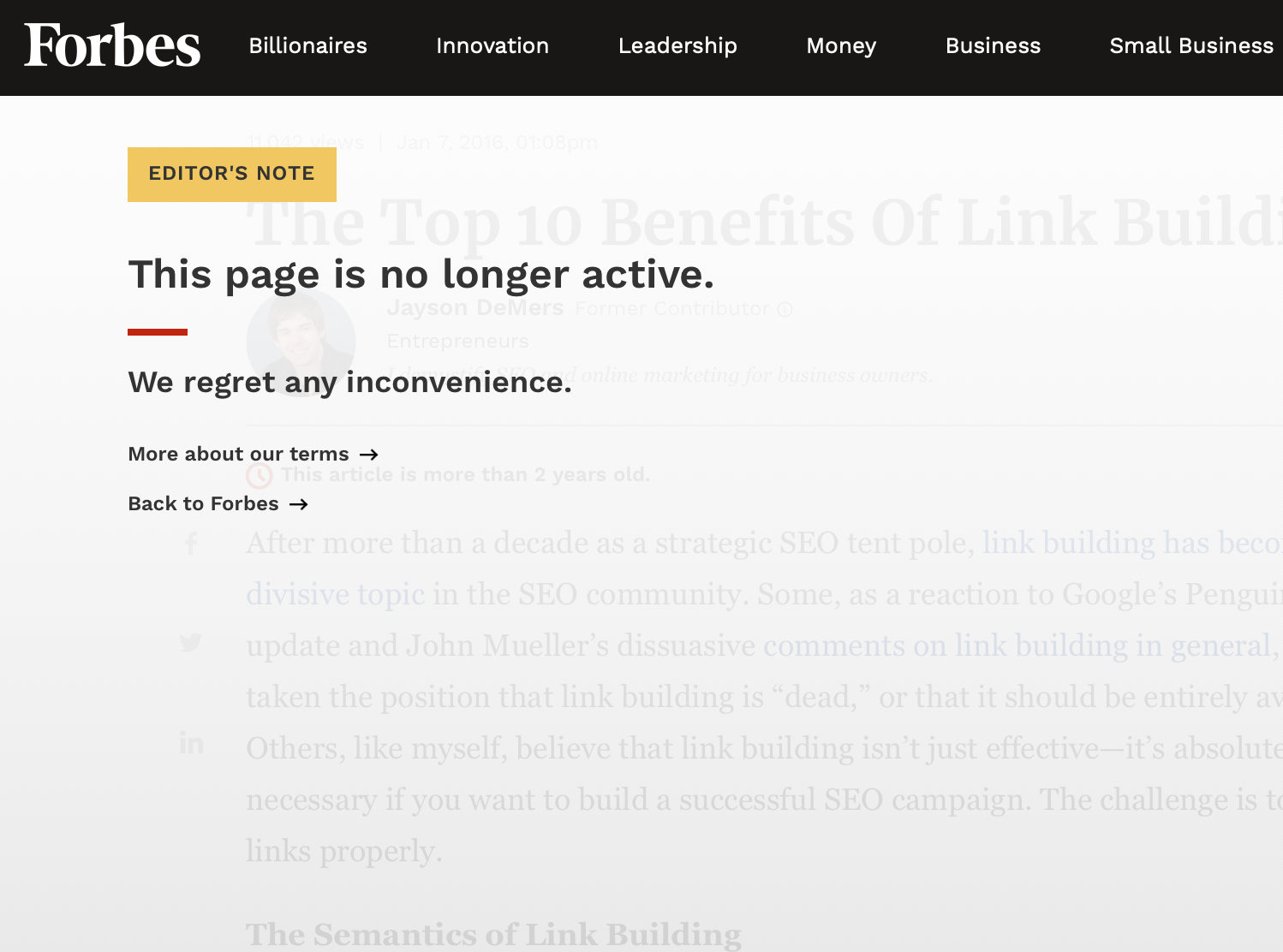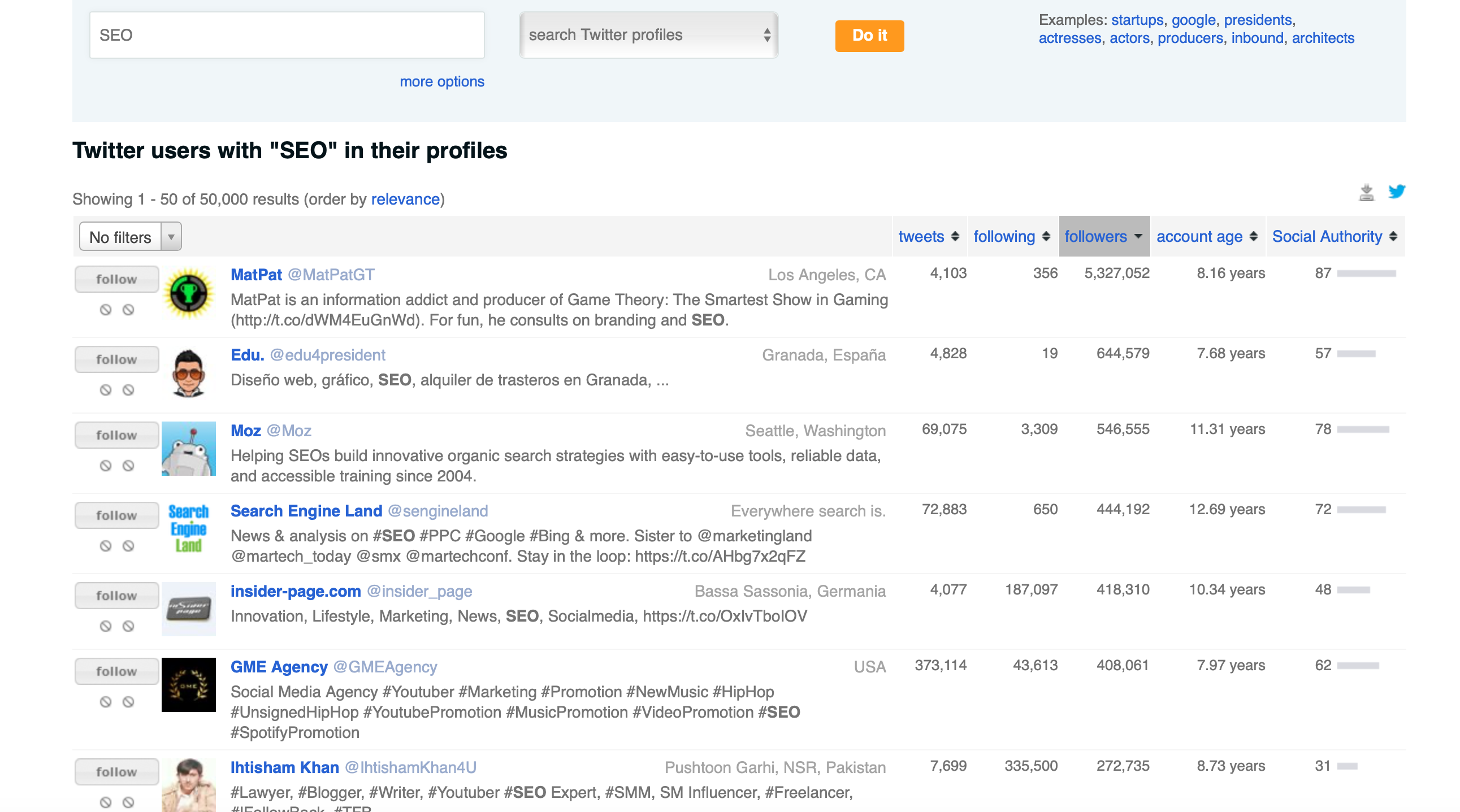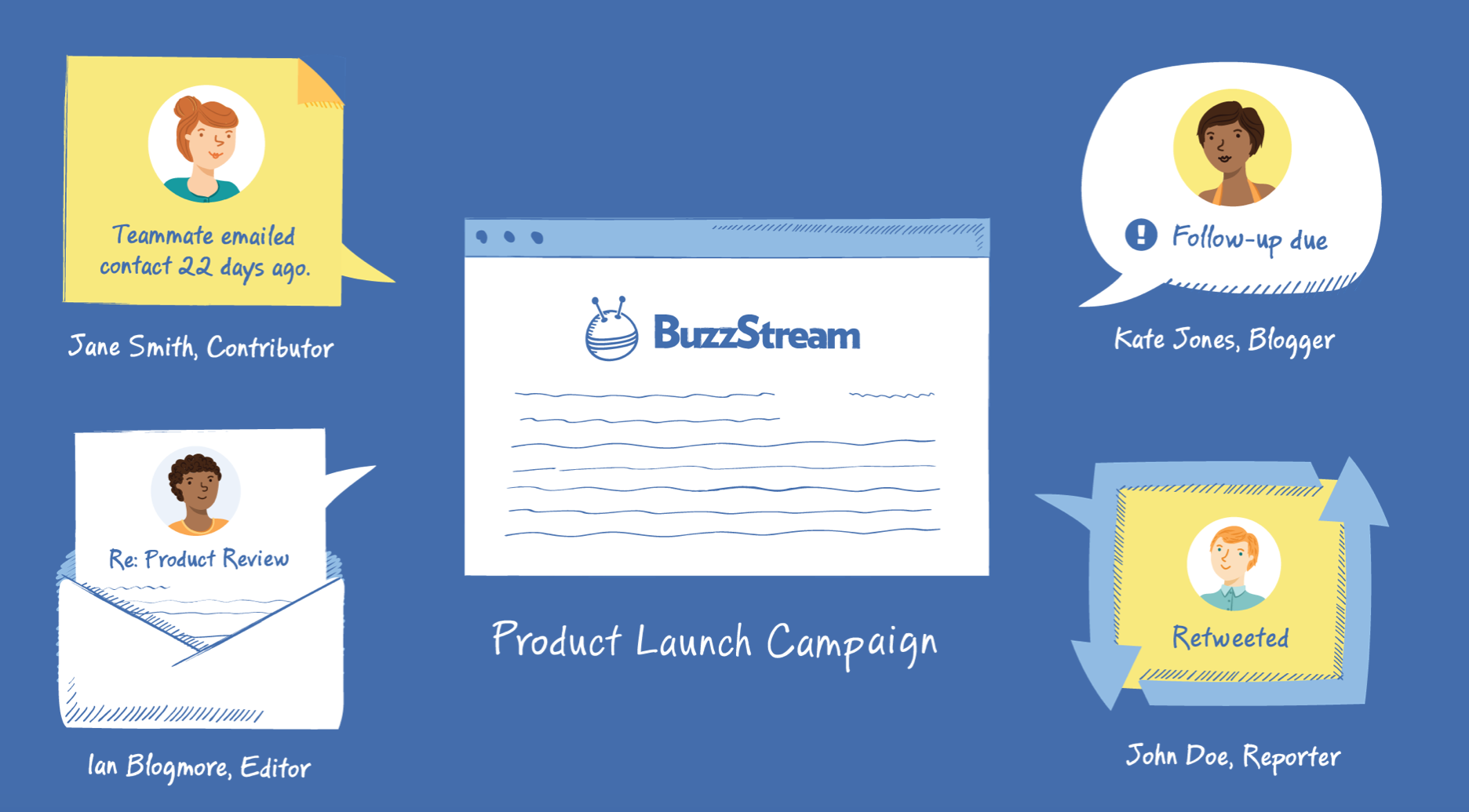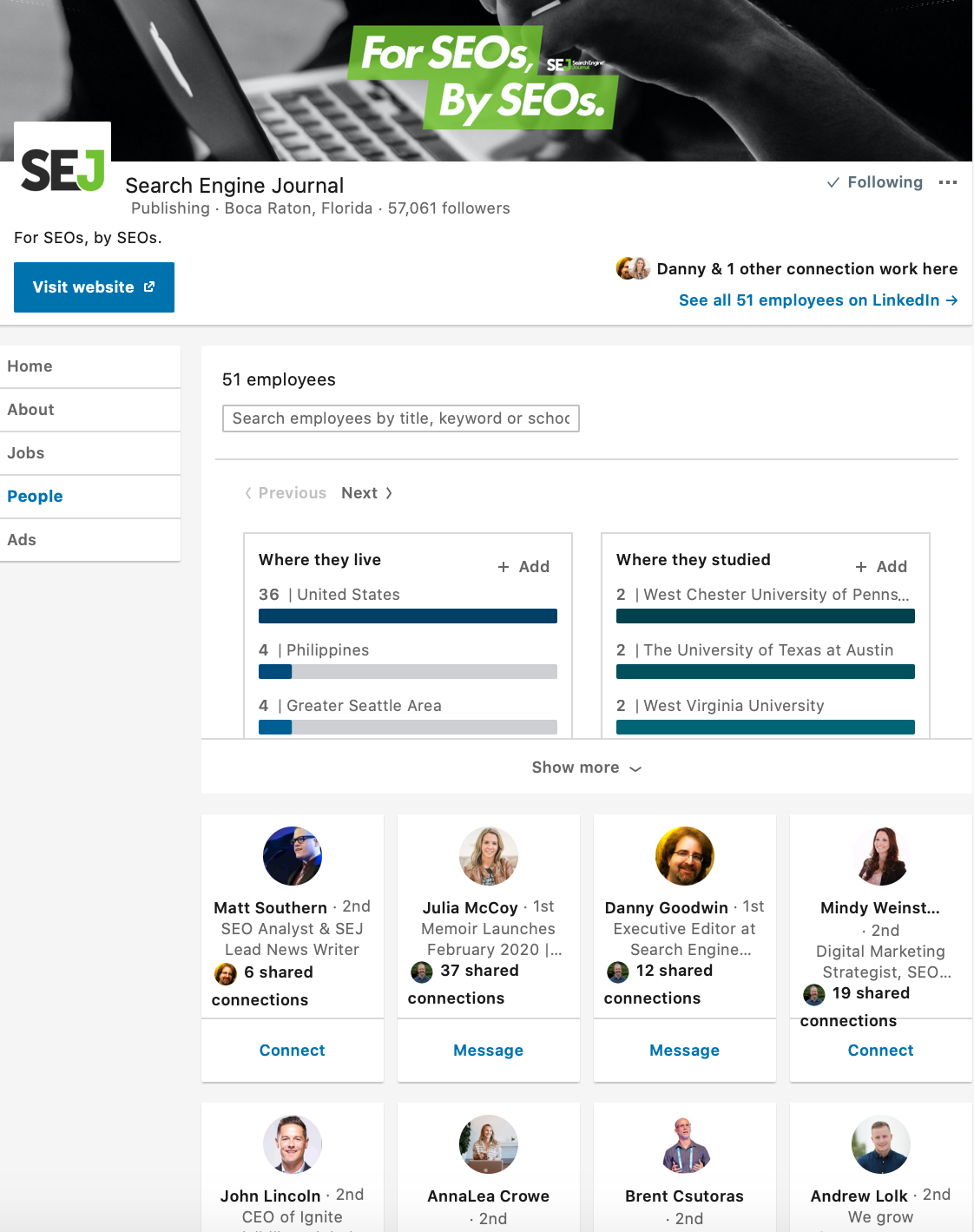When done successfully, link building can lead to some truly stellar results.
We know that links are extremely important for SEO, especially given all of the buzz in the search community around the November 8, 2019 Google algorithm update and how it may have been strongly related to site links (though Google’s John Mueller warned against jumping to this conclusion).
While link building should unquestionably be a part of your overall SEO (and business) strategy, it takes time, planning, and dedication to drive actual success.
For this reason, I’ll cover six of the most common challenges and roadblocks to link building success and how you can avoid them.
1. The Need for Quality Assets

Don’t underestimate the need for quality assets on your site, particularly when it comes to link building.
Creating link-worthy content will help offer valuable information to your readers, reach and engage key targets, and strengthen your authority in the eyes of Google and users.
Assets include everything from articles to products and services pages, research and data, and even the people who work for your organization.
These all present the opportunity to generate links back to your website organically, or by reaching out about a link.
- Influencer-based content: Create content centered around industry influencers and experts that share exclusive insights, perspectives, and opinions. This also presents the opportunity to reach out to them directly and encourage shares with their new and highly targeted audiences.
- Research and reports: I’ve consistently found research, data and statistics-oriented content outperforming other types. What common questions are your customers/prospects asking? Do the research to get them the answers they are looking for and break it down in an easily digestible way.
- Other strategic resources: Share premium assets that assist your audiences in their daily responsibilities and help combat common challenges. This includes how-to/user guides, tools, eBooks, whitepapers, FAQ material, infographics, and other multimedia collateral.
In today’s exceptionally competitive search landscape, SEO pros can no longer get away with generating links from mediocre content.
Site owners and managers have no shortage of information to leverage and link to, so you must offer something unique and, simply put, better.
2. Lack of On-Site Optimization
Too often people look to develop off-site website initiatives (i.e., link building) before optimizing on-site.
Link building is far more powerful when it’s supported by on-site optimization.
If your own site isn’t in good shape, it’s extremely difficult to get buy-in from other site owners.
No one wants to send users to a bad site experience.

This is why building trust and authority is essential.
Have a solid technical foundation for your website to get the most out of your link building efforts.
Doing regular technical site check-ins can help ensure this.
Here are a few key elements to consider:
- Site architecture and URL structure.
- Desktop and mobile experience.
- Page load time / page speed.
- Redirect paths.
- Broken pages, links, and images.
- Optimized page tagging elements.
- Internal cross-link strategy.
- And more.
3. Insufficient Research

Forbes. Washington Post. The Guardian. The Wall Street Journal. Wired. Star Tribune.
Yes, it would be nice to acquire links from any and all of these well-known and authoritative websites.
However, it’s important to look beyond the obvious (and likely long-term) link building targets to identify quick wins and more strategic opportunities.
Competitive Analysis
Find link building opportunities that are worth pursuing in both the short-term and long term by doing a thorough competitive analysis.
Things to consider as part of your competitive analysis:
- Where are your competitors getting links from?
- What publications are linking to competitors’ sites?
- What tactics are being executed in order to do this?
- Can any of these findings be applied to your existing tactics?
Keyword Research & SERP Analysis
All SEO roads lead back to keyword research.
With that said, it may come as no surprise that keyword research and SERP analysis is key when it comes to link building target identification as well.
Considerations when conducting your keyword and SERP analysis:
- What sites are showing up in top Google search results around your priority terms? Note: These will likely be different from your direct competitors.
- Where are these sites getting links from?
- What tactics are being executed in order to do this?
- Are any of these site (showing up in top Google results) publications that present an opportunity for link building?
- Are any of these site business listings or review sites? Disclaimer: Although some of these may be nofollowed links and not directly beneficial from an SEO perspective, it’s still important for getting your brand found.
Industry Research
Know the key influencers, authors, and publications in your space.
While there are certainly some overarching business publications that are relevant across industries and worth exploring, you want to build authority in your specific industry by acquiring links from respected publications.
Additionally, this will help ensure you’re reaching new and relevant audiences that may be interested in working with you.
This can be done by leveraging social media tools and the platforms themselves. A couple of my favorite tools are FollowerWonk and Twitter Advanced Search.

4. Poor Tracking & Automation
Organization is essential when it comes to link building.
Without organization, your link building campaigns will likely fall flat.
Why?
You and other team members will need to know or be able to easily find the status of each link building opportunity as well as contact information.
In order to be proactive and follow up with key targets, you need to have a solid tracking in place, whether it’s an Excel file or more advanced system like BuzzStream.

Storing appropriate contact information in one place will also make your outreach more effective and help save time spent researching based on relationships that have already been established.
In addition to tracking, some level of automation can help take your link building efforts to the next level.
By automation, I do not mean sending mass emails and not customizing your outreach communication.
I do mean having templates saved that can be tailored to individual targets and leveraged in the future.
Having follow-up sequences or reminders in places is also useful.
5. Bad Outreach

Poorly executed outreach is the number one death of link building.
OK, fine, I don’t have the actual research to support this statement but I am making an educated assumption.
There are a few key elements to consider around outreach, including
- Find the right contacts and details for outreach.
- Connect with targets prior to making a request.
- Craft customized and engaging communication.
This all sounds easy, right?
Not so much.
Let’s dive into each aspect of link building outreach a bit more.
Find the Right Contacts & Details for Outreach
Do your research to identify the right contacts for outreach, and the right way to reach them.
Sending outreach via form submission on the website or to a general inquires email address (info@example.com or sales@example.com) will likely not get you anywhere.
Dig into the website to find out who the editor or site manager is.
If it’s not available on the website, LinkedIn is a great way to get more information.
Look at the company page, who works for the company and specific job titles that would be relevant.

Connect with Targets Prior to Making a Request
Following and engaging with targets on social media prior to reaching out about a link building opportunity can make all the difference, as it helps build familiarity and trust with your brand prior.
One of the ways that I like to do this is by building Twitter lists to monitor targets’ activity and engagement opportunities on the platform.
Tools like BuzzStream can help automate this process by identifying targets’ social media profiles for you.
Craft Customized & Engaging Communication
Mass emails no longer cut it. I mentioned this briefly above, but there is more to be said.
If you want to grab the attention of your targets, crafting highly customized outreach templates is essential.
Consider these email outreach tips:
- Don’t use standard templates.
- Avoid coming off spammy or robotic.
- Be clear and concise. Get to the point.
- Get to know your link target and display this knowledge.
- Have a solid reason to reach out.
- Consider the ideal timing.
6. Short-Term Thinking

One of the most common roadblocks to link building success is short-term thinking.
Be patient. Play the long game.
Spend time establishing those long-term and extremely valuable relationships with industry influencers, site owners/managers, editors, and authors.
It’s easy to get discouraged when outreach emails go ignored.
Instead of giving up, look for ways to grab the attention of your targets and stand out from the hundreds of other emails they are receiving each day.
Don’t just approach your targets with requests, instead:
- Connect with them on social media.
- Build familiarity before just reaching out.
- Provide valuable information for them.
- Make your expertise known.
- Share and link to their content.
- Offer opportunities that will benefit them in return.
Although it may not be an immediate win, it’s important to have a bigger picture vision and plan in place. I promise, the payoff is real.
Final Thoughts
Remember, if executed successfully, link building campaigns can generate stellar business results. These include:
- Increased authority.
- Strengthened brand awareness.
- Thought leadership.
- Boosted referral traffic just to mention a few.
Avoid the common roadblocks listed above to make your link building efforts more impactful than ever.
More Resources:
- 18 Popular Link Building Tactics You Should Actually Avoid
- How to Save a Struggling Content-Led Link Building Campaign
- Link Building: How to Acquire & Earn Links That Boost Your SEO
Image Credits
All screenshots taken by author, November 2019





